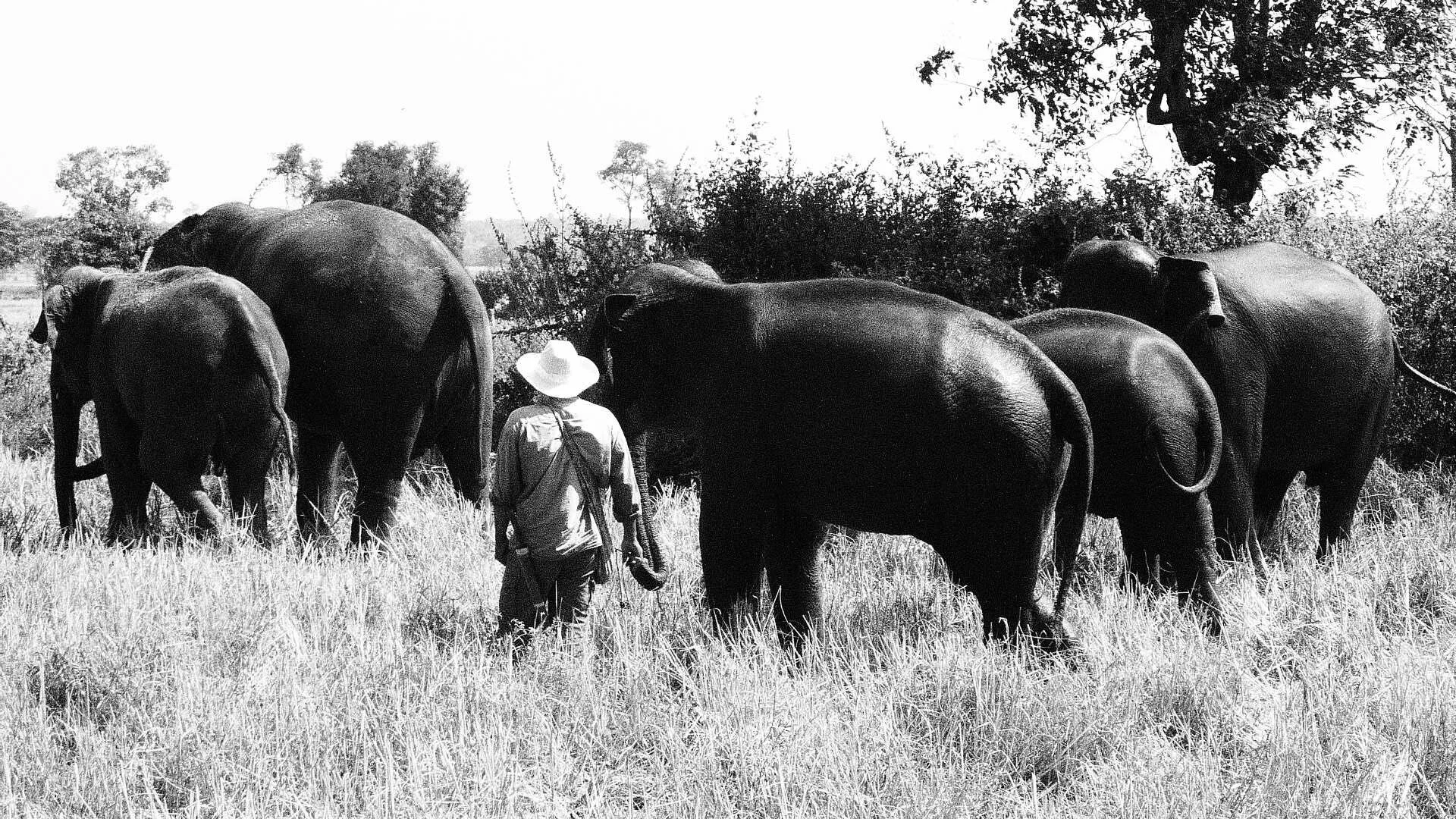MAHOUTS — THAILAND’S TRADITIONAL ELEPHANT KEEPERS
Mahouts are predominantly men from Indigenous tribes such as the Karen, Lao-Isan and Guay, with strong ancestral traditions involving elephants that span hundreds of years. Today, mahouts who work in tourist camps may engage in practices that are harmful to elephants. However, it is important to understand the economic, environmental, social and cultural reasons why they might not treat their elephants in a gentle and sensitive manner.
For Indigenous mahouts, elephant keeping has traditionally been a sacred undertaking, with elephants and forests playing a central role in spiritual beliefs and cultural activities. For centuries, these mahouts were respected as highly skilled men whose occupation made them crucial to Thailand’s civilisation. They worked with elephants in wartime and nation-building activities such as agriculture and construction work, or prepared elephants for these roles. In many ways, elephants in Thailand played a similar role to horses and oxen in Western countries.
Over the past century, the occupation of mahout has changed. This is the outcome of ongoing deforestation that has devastated 75% of Thailand’s forests. Logging once employed thousands of mahouts and elephants in northern Thailand, who relied on the industry for their livelihood, despite it destroying their forests. In other parts of the country, agriculture and road-building also destroyed forests, affecting different populations of elephants and mahouts.
Deforestation meant that the homes and habitats of mahouts and their elephants were irrevocably changed. This also negatively impacted cultural and spiritual traditions tied to the forests. The logging ban in northern Thailand put mahouts and elephants out of work, while those elsewhere experienced land degradation, reducing the yield of subsistence farming methods. Most profoundly, these changes vastly reduced the land available for elephants to roam, forage and socialise.
Over the past four decades, mahouts have turned to the tourism industry to provide themselves with an income and their elephants with food. But tourist activities involving elephants — such rides and circuses — can cause serious welfare issues. However, ongoing shifts towards more ethical forms of elephant tourism are helping to improve elephant welfare while also providing a sustainable income for mahouts.

